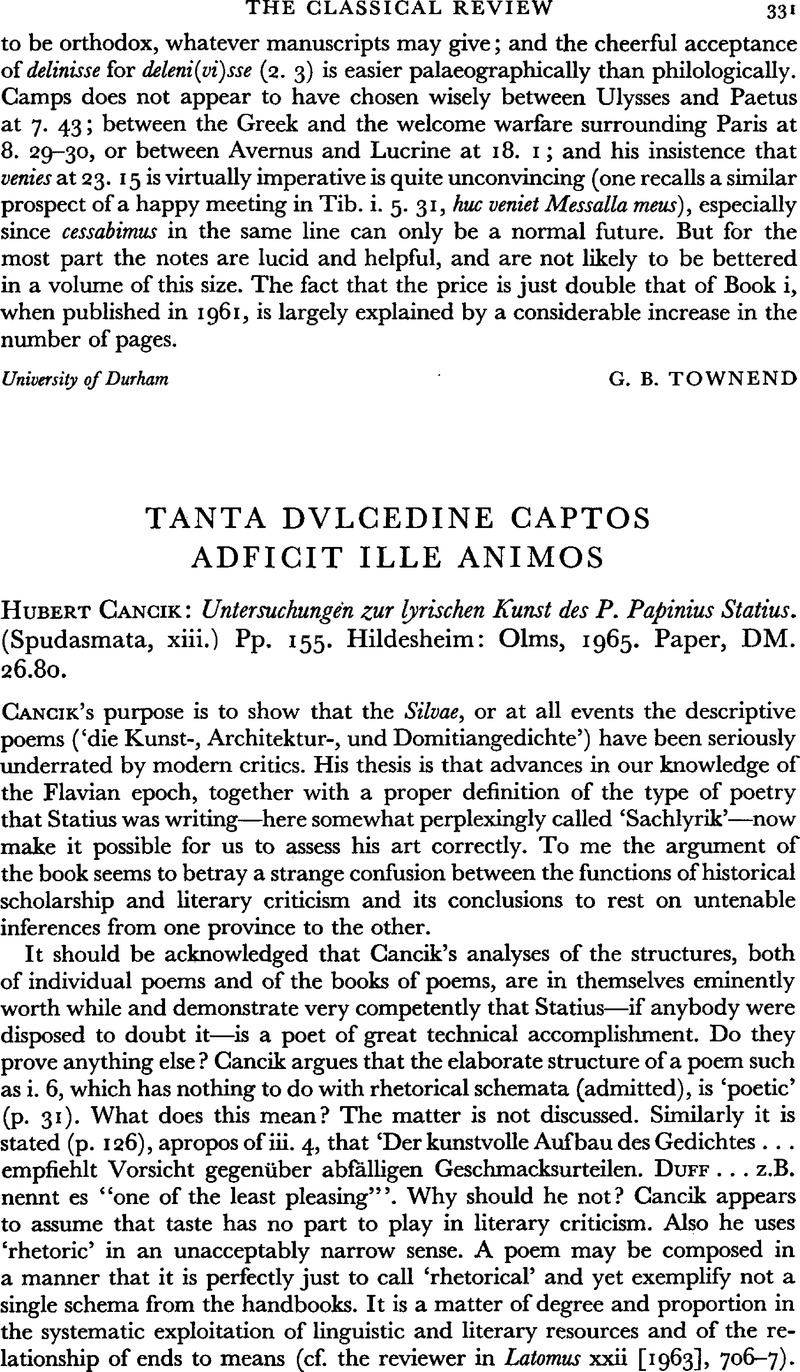No CrossRef data available.
Article contents
Tanta Dvlcedine Captos Adficit Ille Animos - Hubert Cangik: Untersuchungen zur lyrischen Kunst des P. Papinius Statius. (Spudasmata, xiii.) Pp. 155. Hildesheim: Olms, 1965. Paper, DM. 26.80.
Published online by Cambridge University Press: 27 February 2009
Abstract

- Type
- Reviews
- Information
- Copyright
- Copyright © The Classical Association 1966
References
page 332 note 1 Only two Ovidian items are recorded as translated into English by 1560, and one of them was ‘The fable of Ovid treating of Narcissus’ (Bennett, H. S., English Books & Readers 1475 to 7557 〈1952〉, p. 311).Google Scholar
page 333 note 1 Cancik's discussion of the verses that follow (p. 98 and n. 96) rests on a fundamental misinterpretation, not, it should be said, peculiar to him. Vv. 97–98 are a theme and variation in the Ovidian manner: ceruix cannot possibly refer to the neck of the horse but must answer amplexus (colla would be less outré: cf. Prop. iv. 7. 18). So Slater, whose translation Cancik does not mention: ‘On thy neck alone shall all these heavenly visitants fall.’ For astrum = ‘god’ cf. v. 55, where indeed there is a not dissimilar variation, since it answers domini in v. 54.
page 333 note 2 Not, it appears (p. 13 and n. 4), to Goethe. This is interesting, but how does it concern the reader of 1966?


